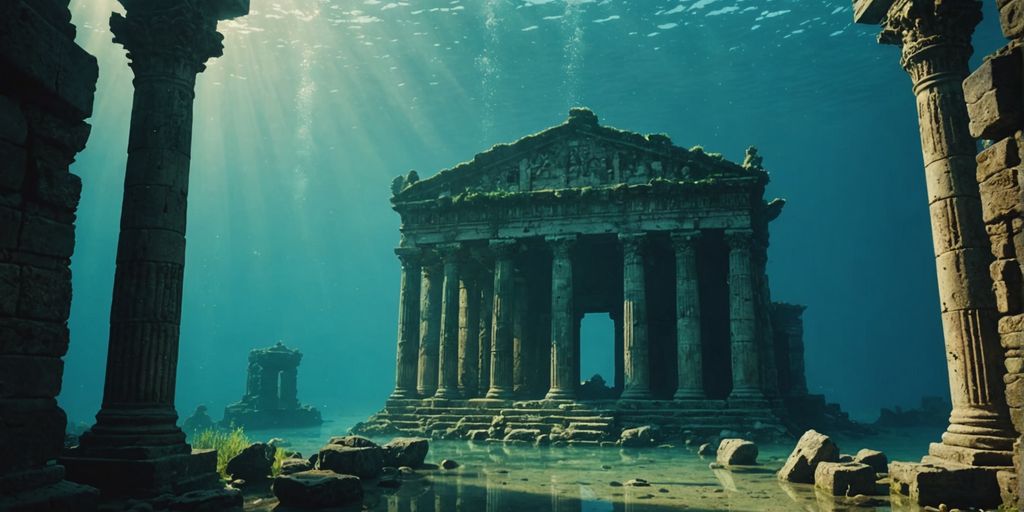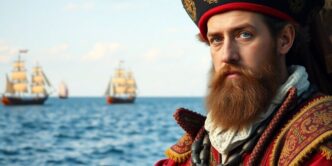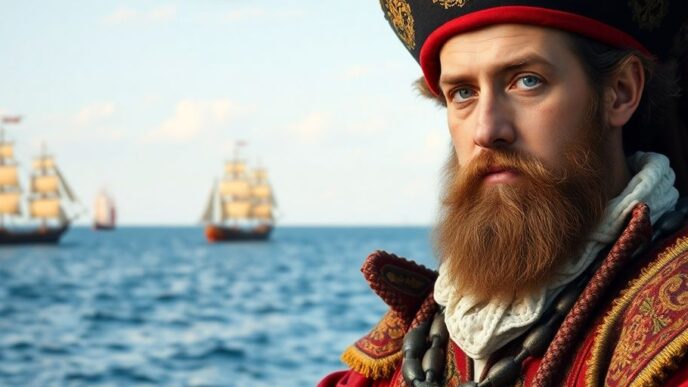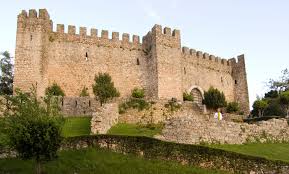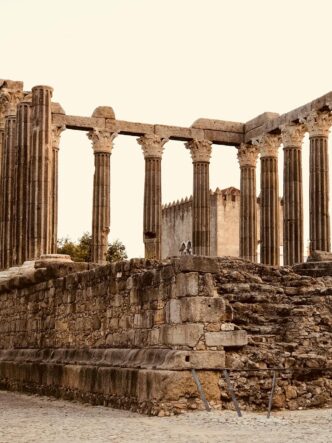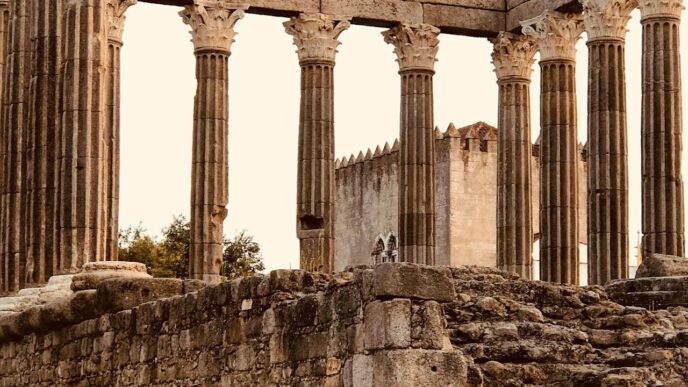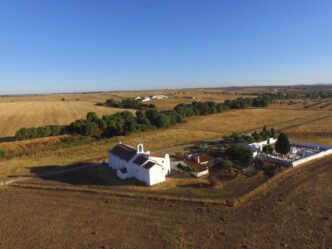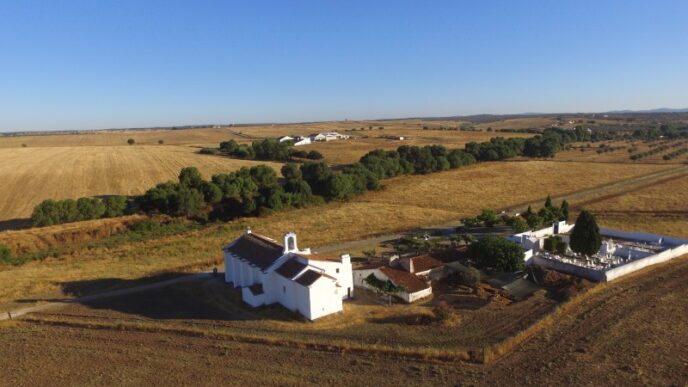The Origins of the Atlantis Legend
Plato’s Dialogues: Timaeus and Critias
The story of Atlantis begins with two of Plato’s dialogues, Timaeus and Critias. These are the only known written records that specifically mention a lost civilization called Atlantis. Some people think the tale is pure fiction, created by Plato to make a point. Others believe it was inspired by real events, like the destruction of the Minoan civilization on Crete and Thera. There are also those who think the story is a true account of a forgotten land.
Early Modern Rediscovery
During the Early Modern period, Humanists rediscovered the story of Atlantis. Plato’s description inspired many Renaissance writers, such as Francis Bacon in his work New Atlantis. The legend of Atlantis continues to influence modern literature, from science fiction to comic books and films. The name Atlantis has become a symbol for any supposed advanced prehistoric lost civilization.
Renaissance Utopian Works
In the Renaissance, the idea of Atlantis was used in utopian works. Writers imagined it as a perfect society. These works were inspired by Plato’s original story and often reflected the authors’ hopes for a better world. Atlantis, as described by Plato, was a rich island whose powerful princes conquered many lands, making it an ideal subject for utopian literature.
Portuguese Theories on Atlantis

José Antunes’ Sintra-Mafra Hypothesis
In 1989, Portuguese researcher José Antunes suggested that Atlantis was located northwest of Lisbon, between Sintra and Mafra. This theory adds a unique perspective to the Atlantis theories by placing the lost city in a region known for its historical and cultural significance.
Roger Coghill’s Faro-Algarve Theory
British bioelectromagnetic investigator Roger Coghill proposed a more radical idea. He claimed that Atlantis was near Faro in the Algarve. Coghill expanded on this theory in his book, The Message of Atlantis, and highlighted a 1983 book by Antonio Jose Lopes Navarro, which compiled classical references to the prehistory of the Algarve.
Peter Daughtrey’s Silver City
In 2013, British researcher Peter Daughtrey, who lived in Portugal, published Atlantis and the Silver City. He argued that not just the Algarve but the entire southwest Iberian region, including the submerged areas in front of it, was Atlantis. Daughtrey’s book has been updated with what he calls “dramatic new evidence” and is supported by a website featuring additional articles, interviews, and reviews.
The Azores and Atlantis
Ignatius L. Donnelly’s Proposal
The Azores Islands, located about 900 miles west of Portugal, have long been suggested as a possible location for Atlantis. Ignatius L. Donnelly, an American congressman, was one of the first to propose this idea in his 1882 book, Atlantis: The Antediluvian World. Donnelly believed that the islands could be the mountain tops of the lost city.
Geological Evidence and Debates
The Azores are steep-sided volcanic seamounts that drop rapidly to a plateau. Some researchers, like Charles Schuchert, have argued that the Azores are not remnants of a large continental mass but are volcanic in origin. Schuchert’s studies showed that the area has been an undersea plateau for millions of years. However, there are ancient indicators, such as relict beaches and marine deposits, that suggest some of these islands have actually risen over time.
Modern Perspectives on the Azores
Today, the Azores continue to be a topic of interest for those studying Atlantis. The islands’ unique geological features and their location at the Azores Triple Junction, where three tectonic plates meet, make them a fascinating subject for ongoing research. While the debate continues, the Azores remain a compelling candidate for the legendary Atlantis.
The Algarve: A Contender for Atlantis

Antonio Jose Lopes Navarro’s Classical References
Antonio Jose Lopes Navarro, in his 1983 book, gathered numerous classical references to the prehistory of the Algarve. His work has been pivotal in suggesting that this region could be linked to the legendary Atlantis. Navarro’s research highlights the rich historical tapestry of the Algarve, making it a significant point of interest for those exploring the Atlantis legend.
Peter Daughtrey’s Updated Evidence
Peter Daughtrey, a British researcher, has made substantial contributions to the theory that the Algarve could be Atlantis. In his book, Atlantis and the Silver City, Daughtrey presents what he calls “dramatic new evidence” supporting this claim. He argues that not just the Algarve, but the entire southwest Iberian region, fits Plato’s description of Atlantis. Daughtrey’s work is supported by a website where additional articles, interviews, and reviews can be found.
Seismic Activity and Submersion
The Algarve is located near one of the world’s most lethal seismic fault lines. This area has experienced earthquakes and tsunamis that could have caused significant submersion, aligning with the idea of a lost city like Atlantis. The seismic activity in this region adds a layer of plausibility to the theory that the Algarve could be the site of the submerged city described by Plato.
Lisbon and Surrounding Areas
Steven Sora’s Trojan/Atlantean Connection
Steven Sora suggests that Lisbon might have connections to both Troy and Atlantis. He believes that the ancient city of Troy and the legendary Atlantis could be linked through their shared maritime culture. According to Sora, the Tagus River near Lisbon was a significant trade route, which might have been used by the Atlanteans.
Lereno Barradas’ Tagus Estuary Theory
Lereno Barradas proposed that the Tagus Estuary could be the location of the lost city of Atlantis. He argues that the estuary’s unique geographical features match Plato’s descriptions of Atlantis. Barradas points out that the estuary’s depth and the surrounding landscape could have supported a thriving ancient civilization.
Luis Aldamiz’s VNSP Culture
Luis Aldamiz focuses on the VNSP (Vale do Nabão, Serra de Sicó, and Penela) culture, which he believes has ties to Atlantis. He suggests that this ancient culture, found in the Lisbon area, shares similarities with the descriptions of Atlantean society. Aldamiz highlights the advanced megalithic structures and sophisticated agricultural practices as evidence of this connection.
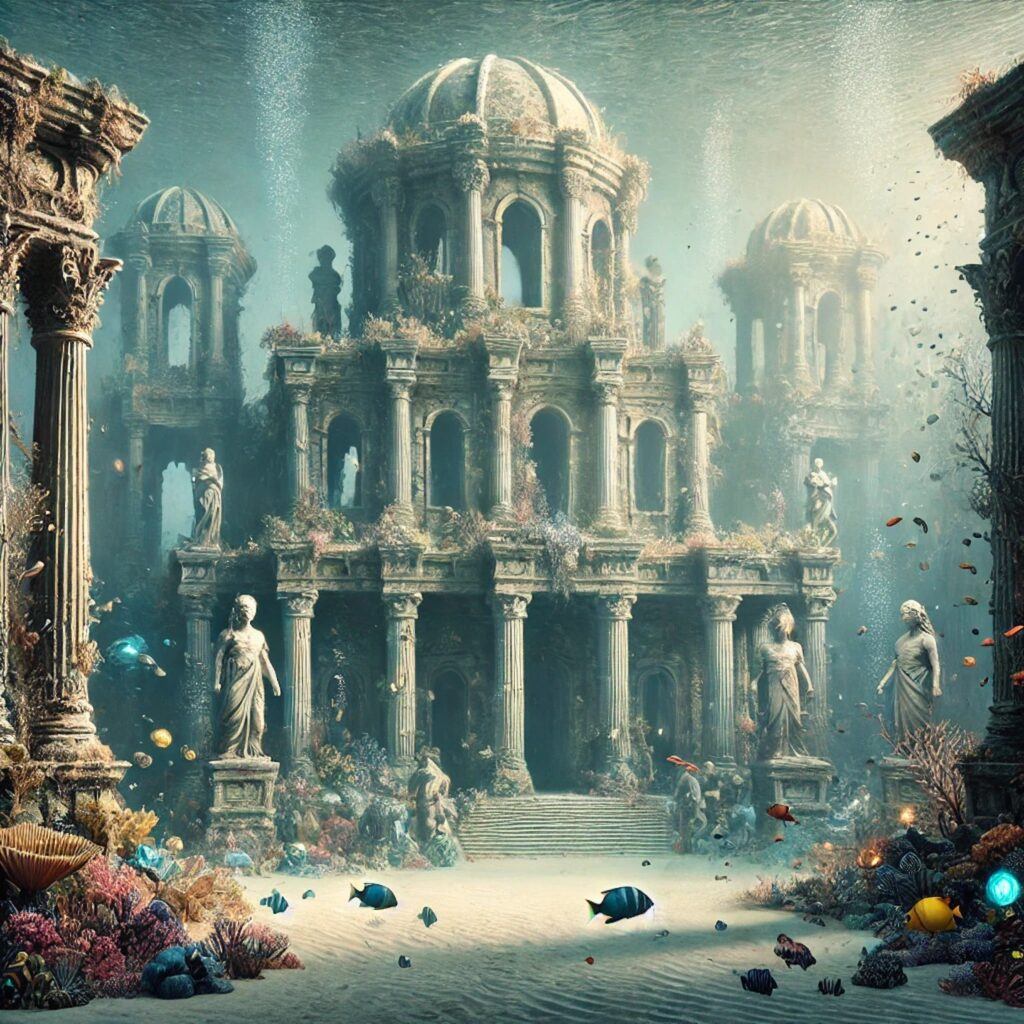
The Role of Megalithic Sites
Leonard Wolf’s Exploration in Evora
Leonard Wolf, a well-known researcher, has spent years exploring the ancient megalithic sites in Evora. His work has uncovered fascinating connections between these ancient structures and the legend of Atlantis. Wolf believes that the megaliths in Evora could be remnants of a lost civilization, possibly linked to the mythical Atlantis.
Almendres Cromlech and Other Sites
The Almendres Cromlech is one of the most significant megalithic sites in Portugal. This ancient stone circle, along with other similar sites, has intrigued archaeologists and historians for years. Some researchers suggest that these mysterious formations might have been used for astronomical purposes or as ceremonial sites. The precise alignment of the stones indicates a deep understanding of celestial events by the ancient builders.
Megaliths and Atlantean Culture
Megalithic sites across Portugal are often linked to the legend of Atlantis. Some theories propose that these structures were built by the Atlanteans or influenced by their culture. The similarities in construction techniques and the use of large stones suggest a shared knowledge or cultural exchange between these ancient civilizations. The discovery of these sites continues to fuel the debate about the existence and location of Atlantis.
The Bell Beaker Culture
Origins in Portugal
The Bell Beaker culture, known for its distinctive pottery, is believed to have originated in Portugal around 2800 BCE. This culture spread across Western Europe, leaving behind a trail of unique artifacts. The beakers, often decorated with intricate patterns, were used for drinking and are thought to have played a role in social and ritual activities.
Mel Nicholls’ Atlantean Nomination
Mel Nicholls proposed an intriguing theory that the Bell Beaker culture could be linked to the legendary Atlantis. According to Nicholls, the advanced skills in pottery and metallurgy displayed by the Bell Beaker people suggest they might have been descendants of the Atlanteans. This theory, while not widely accepted, adds an interesting dimension to the study of this ancient culture.
Donald Ingram’s Wessex II Theory
Donald Ingram put forward the Wessex II theory, which connects the Bell Beaker culture to the later Wessex culture in Britain. Ingram argued that the migration of Bell Beaker people to the British Isles influenced the development of the Wessex culture, known for its impressive megalithic structures. This theory highlights the far-reaching impact of the Bell Beaker culture across Europe.
The Madeira Islands Hypothesis
Historical Claims and Evidence
The Madeira Islands have long been a subject of fascination and speculation. Some early maps, like the Bianco map of 1448, show Madeira along with other Atlantic islands. These maps often included mythical islands, suggesting that Madeira was part of a larger, mysterious landmass. The name Madeira, meaning “island of the woods,” reflects its dense forests, which were noted by early explorers.
Comparisons with the Azores
While the Azores are steep-sided volcanic seamounts, Madeira has its own unique geological features. Unlike the Azores, which have been an undersea plateau for millions of years, Madeira’s landscape has been shaped by volcanic activity and erosion. Some researchers argue that both island groups could be remnants of a larger landmass, possibly connected to the legend of Atlantis.
Modern Investigations
Modern studies have focused on the geological and biological evidence to understand Madeira’s history. Some scientists have looked at shipwrecks in the Azores and other Atlantic islands to gather clues about ancient navigation routes. These investigations aim to piece together the puzzle of whether Madeira could have been part of the fabled Atlantis.
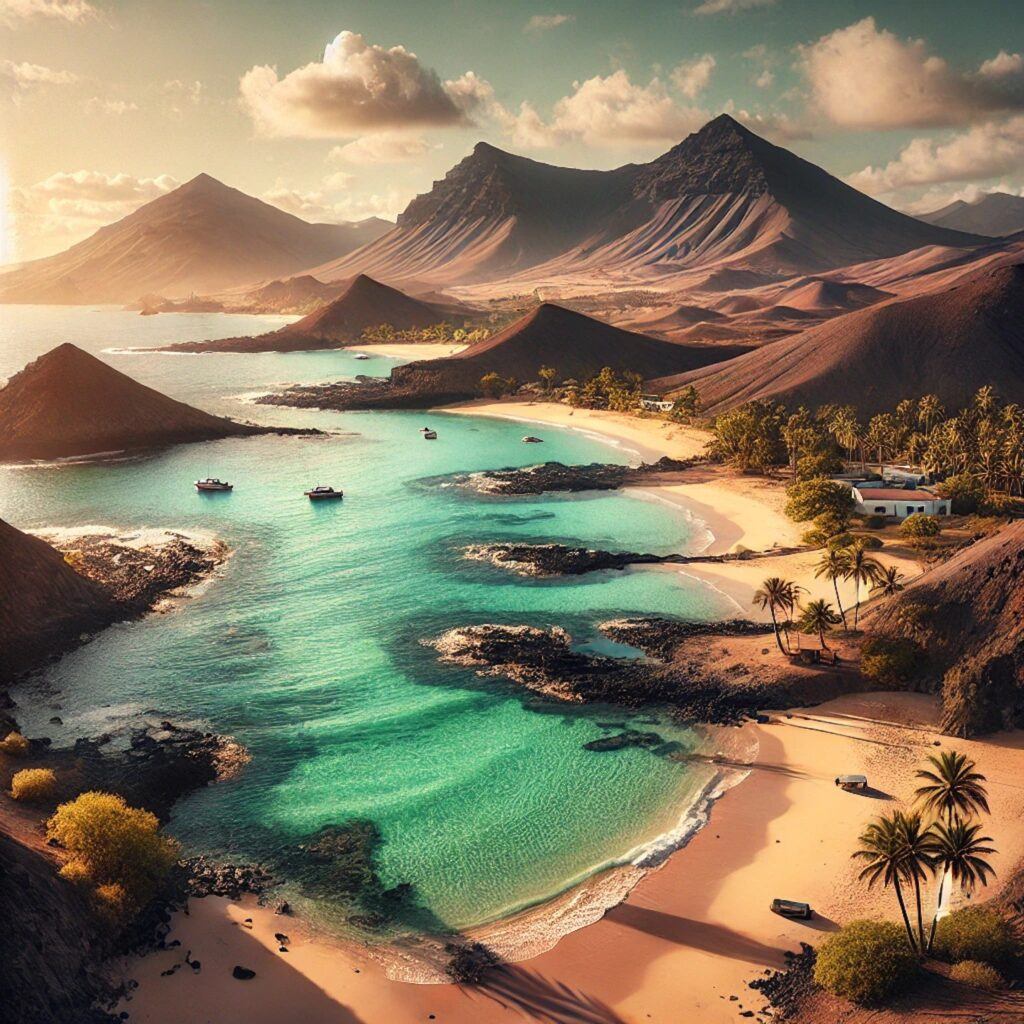
The Broader Atlantic Hypothesis
The Canary Islands Connection
Some researchers believe that the Canary Islands might be remnants of the lost Atlantis. They argue that these islands, along with others in the Atlantic, could be the peaks of submerged mountains from a once-great landmass. This theory suggests that the Canary Islands are the highest points of a sunken continent that existed thousands of years ago.
Spartel and the Strait of Gibraltar
Another theory points to Spartel Island, a submerged landmass near the Strait of Gibraltar. This hypothesis proposes that Spartel could be the location of Atlantis, as described by Plato. The island is believed to have sunk due to seismic activity, which aligns with the story of Atlantis being destroyed by earthquakes and floods.
Other Atlantic Locations
There are various other locations in the Atlantic that have been proposed as the site of Atlantis. These include the Azores, the Bahamas, and even parts of the Caribbean. Each of these locations has unique geological features that some believe could be linked to the legendary city. However, none of these theories have been proven, and the true location of Atlantis remains a mystery.
Alternative Theories Beyond the Atlantic
Caribbean Locations
Some believe that Atlantis might be found in the Caribbean. Places like Cuba, the Bahamas, and the Bermuda Triangle are often mentioned. These areas have mysterious histories and underwater structures that spark curiosity.
Pacific and Indian Ocean Theories
Other theories suggest that Atlantis could be in the Pacific or Indian Oceans. For example, some think it might be in Indonesia or Malaysia, areas known as Sundaland. There’s also a story about a lost land off India called Kumari Kandam, which some people link to Atlantis.
Antarctica and Other Speculations
A more unusual idea is that Atlantis is actually Antarctica. This theory became popular in the 1960s and 1970s. Some authors, like Charles Berlitz and Erich Von Däniken, wrote about it. They used maps and geological theories to support their claims. One theory, called “Earth Crust Displacement,” suggests that the Earth’s crust can move, placing Atlantis in Antarctica. This idea was even mentioned by Albert Einstein in a book preface.
These alternative theories show that the legend of Atlantis continues to capture our imagination, leading to many different ideas about where this lost city might be.
Conclusion
The legend of Portugal’s lost Atlantis continues to captivate our imagination. From the theories of José Antunes and Roger Coghill to the more recent claims by Peter Daughtrey, the idea that Atlantis might lie beneath Portuguese waters remains a topic of fascination. Whether it’s the Azores, the Algarve, or the submerged lands off the coast, each hypothesis adds a piece to the puzzle. While definitive proof remains elusive, the search for Atlantis encourages us to explore our history and the mysteries of our world. Perhaps one day, the secrets of this ancient civilization will be revealed, but until then, the legend lives on, inspiring adventurers and dreamers alike.

